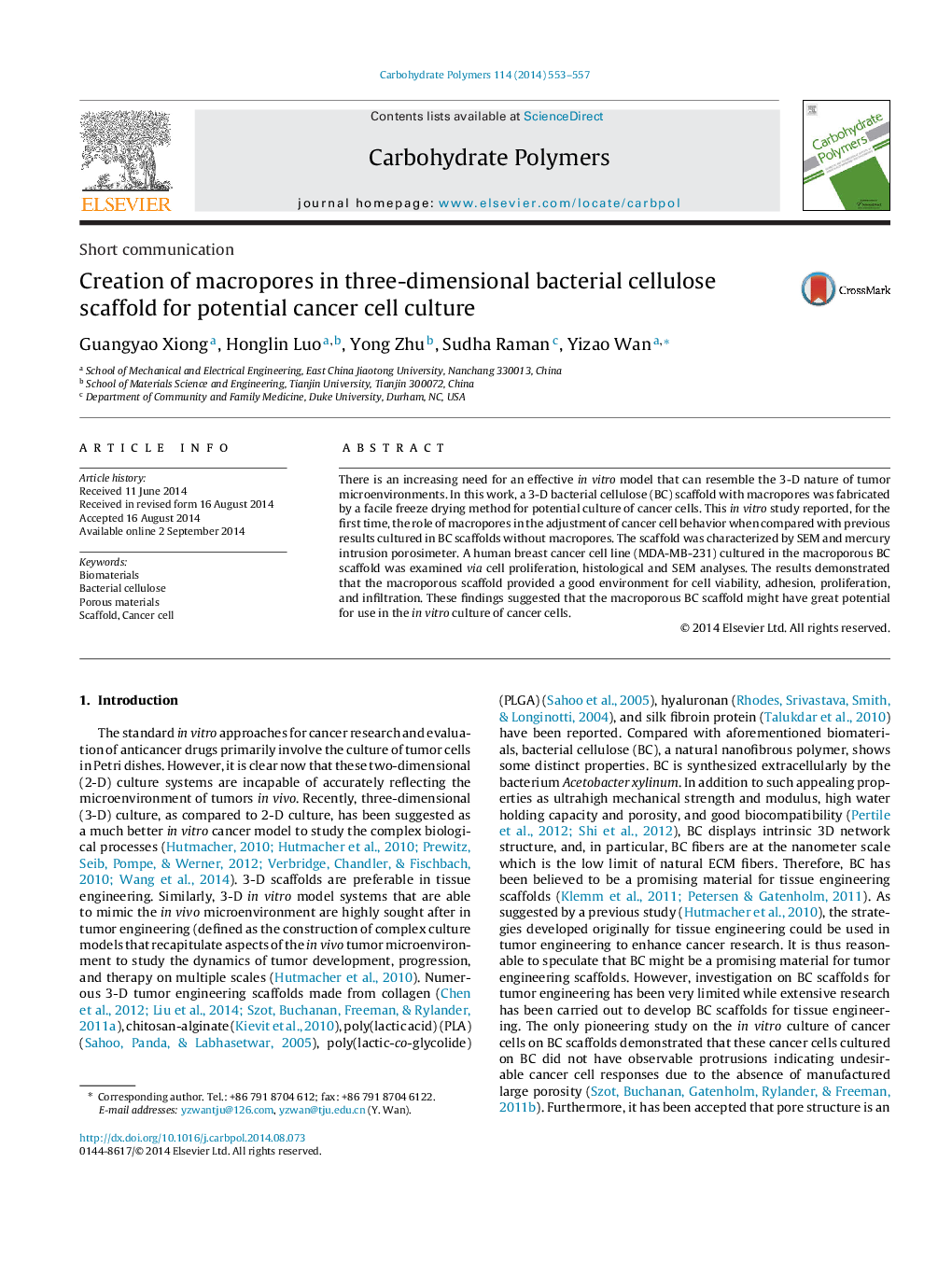| Article ID | Journal | Published Year | Pages | File Type |
|---|---|---|---|---|
| 7790869 | Carbohydrate Polymers | 2014 | 5 Pages |
Abstract
There is an increasing need for an effective in vitro model that can resemble the 3-D nature of tumor microenvironments. In this work, a 3-D bacterial cellulose (BC) scaffold with macropores was fabricated by a facile freeze drying method for potential culture of cancer cells. This in vitro study reported, for the first time, the role of macropores in the adjustment of cancer cell behavior when compared with previous results cultured in BC scaffolds without macropores. The scaffold was characterized by SEM and mercury intrusion porosimeter. A human breast cancer cell line (MDA-MB-231) cultured in the macroporous BC scaffold was examined via cell proliferation, histological and SEM analyses. The results demonstrated that the macroporous scaffold provided a good environment for cell viability, adhesion, proliferation, and infiltration. These findings suggested that the macroporous BC scaffold might have great potential for use in the in vitro culture of cancer cells.
Related Topics
Physical Sciences and Engineering
Chemistry
Organic Chemistry
Authors
Guangyao Xiong, Honglin Luo, Yong Zhu, Sudha Raman, Yizao Wan,
